I’ve written before about my love of Nyungwe National Park in Rwanda. How do you not love a place that is home to 13 primate species – 25% of all primates found in Africa?
On my primate safari in Rwanda, I was most looking forward to seeing the gorillas who live in Volcanoes National Park to the north of Nyunge. They did not disappoint as you can see from my epic day. Next up, I was most looking forward to observing chimpanzees which are found in Nyungwe. I also loved it, although my visit wasn’t as epic as my gorilla visit was.
Colobus monkeys are docile, beautiful primates with long black and white coats and I had never seen one in the wild. I was looking forward to it, but kept my expectations in check after my visit to the Golden Monkeys, one of the rarest primates in all of Africa. Colobus monkeys can live in troops numbering in the hundreds but the troop of approximately 20 individuals I visited choose what I considered to be an odd location – on the fringe of the park, next to a tea plantation. My guide explained to me that after a troop of chimps had gone on a colobus monkey hunting spree (yep chimps hunt the colobus for meat) this group had chosen a safer location – away from the chimps.
I observed the monkeys from the tea plantation, while swatting at biting ants (travel tip: wear long pants, and tuck your pants into your socks). The first 30 minutes or so of the visit was rather uneventful. Breakfast was apparently over and it was morning nap time. As beautiful as they are, observing sleeping monkeys is not that exciting after a while – even for a monkey lover like me.
Eventually my guide pointed to a mother cradling her baby close to her chest – naturally with her back to us. I caught a glimpse of the white tail wrapped around her body, but that was it. I pleaded with her to turn around. There’s nothing cuter than a baby monkey. The monkey gods decided to cooperate as not only did she turn around revealing a month old baby (OMG! YIPEE!), but another mother appeared with a baby who was about 2 1/2 months old (DOUBLE YIPEE!). I had hit the monkey goldmine! Not one, but TWO baby monkeys! Colobus monkeys are born completely white and gradually over the next 3 months start to develop their signature black and white coats.
I challenge you to find anything cuter than baby colobus monkeys:
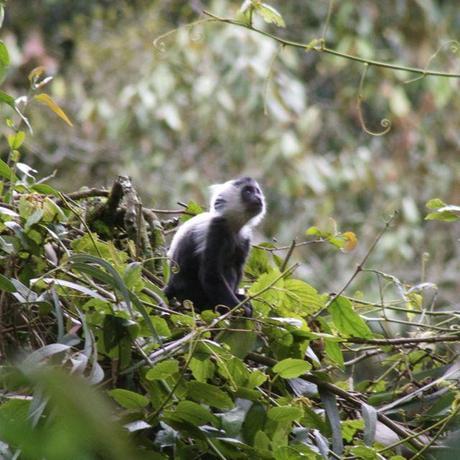
Baby colobus monkey l(~ 2 1/2 months old) ooking up
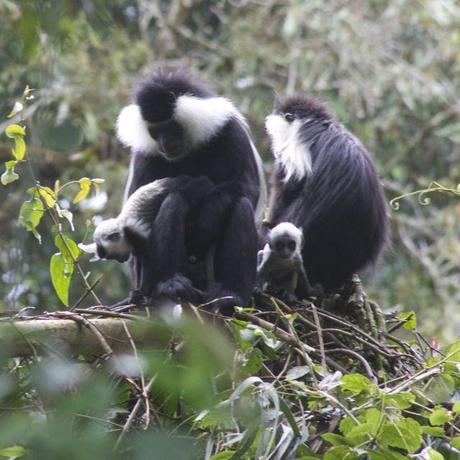
Mother and father taking care of their own infant and babysitting for another colobus monkey.
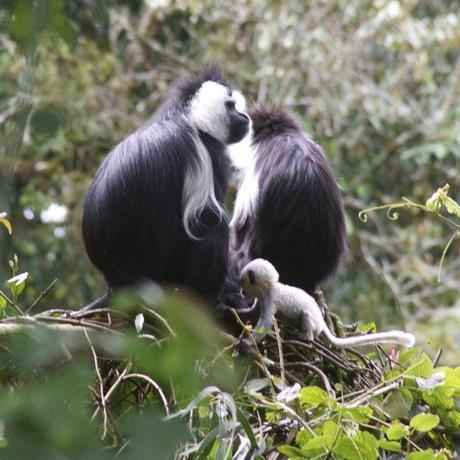
Colobus monkey that is only 1 month old
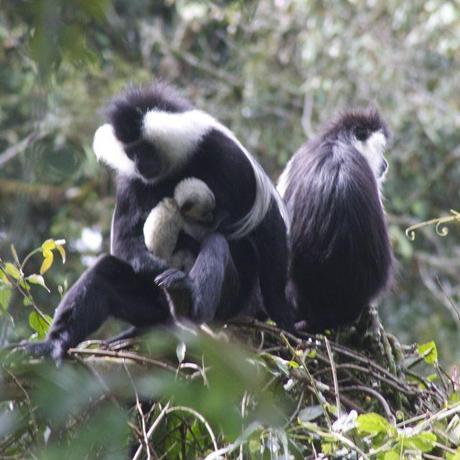
Baby colobus monkey getting a hug from dad
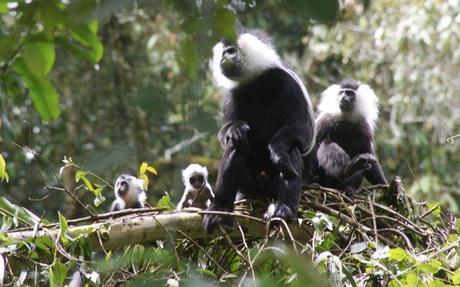
Two colobus baby monkeys playing together.
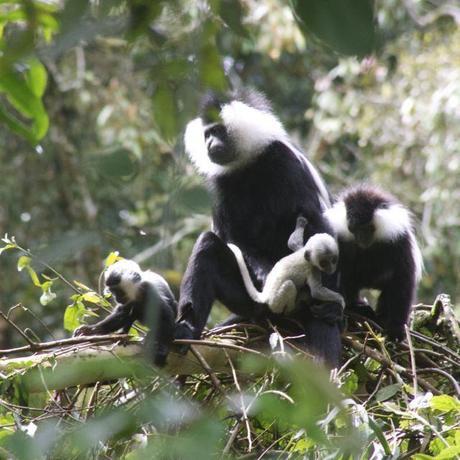
It’s not just mom who is on babysitting duty.
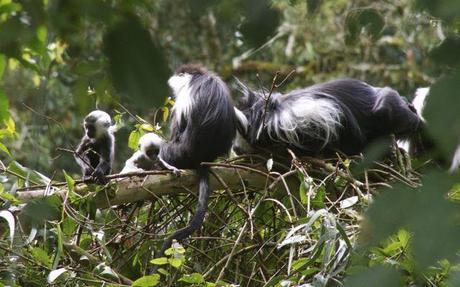
Starting to explore while still staying close to mom and dad.
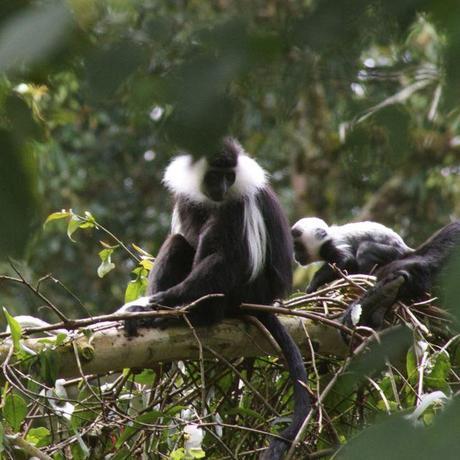
Baby colobus monkey playing hide and seek.
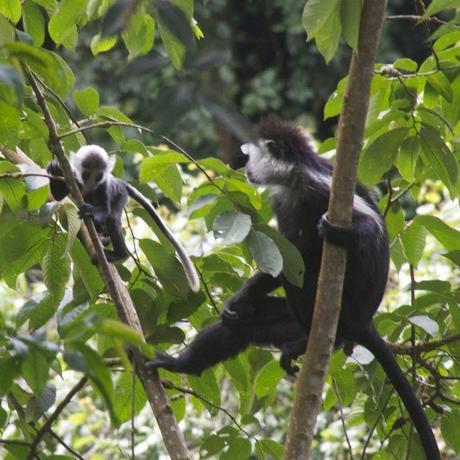
Mother teaching her infant how to jump. Quite possibly the cutest thing I have EVER seen.
Know Before You Visit the Colobus Monkeys in Nyungwe Forest, Rwanda
- Visits are only possible with a guide, cost $70 and last one hour.
- It’s possible to visit several times throughout the day.
- Book in advance during high season to ensure there is space available. I went with Amahoro Tours, who arranged my visit.
- Besides the colobus monkeys, it’s also possible to arrange visits to see Blue monkeys and Mangabeys. Each visit costs $70. A one hour visit to the chimps costs $150.
- Wear long pants (no matter how hot it is) and socks. The ants in the tea plantation bite and it hurts. Tuck your pants into your socks. A long sleeve shirt is also a good idea.
- Find out more about Nyungwe Forest here.
- Be on the lookout for something white moving in the trees – then you know it’s a baby monkey. Prepare yourself for oodles and oodles of cuteness.

